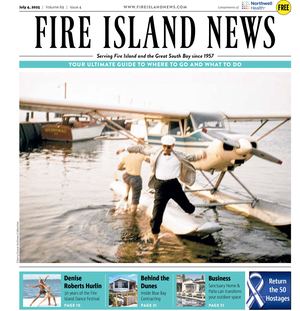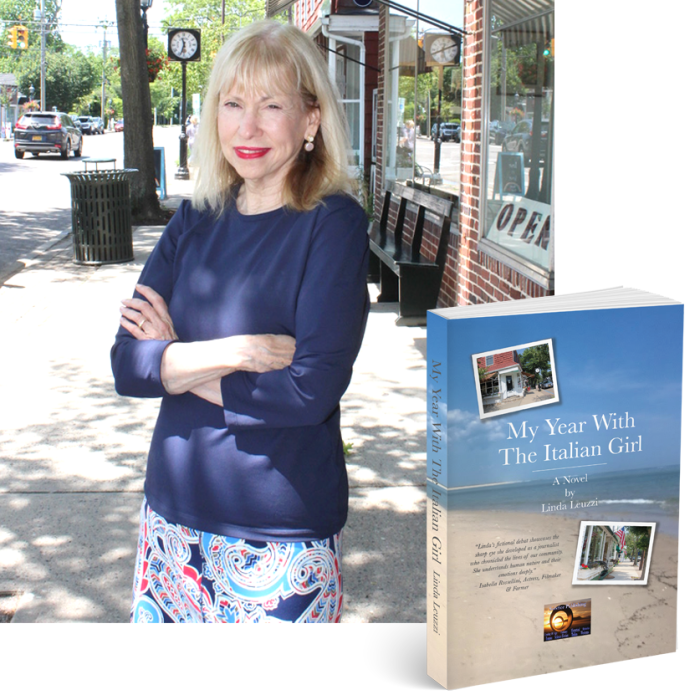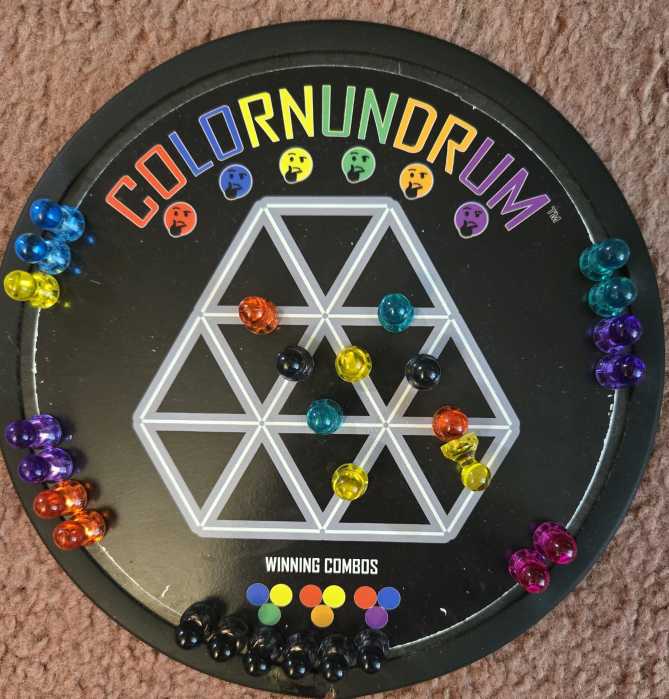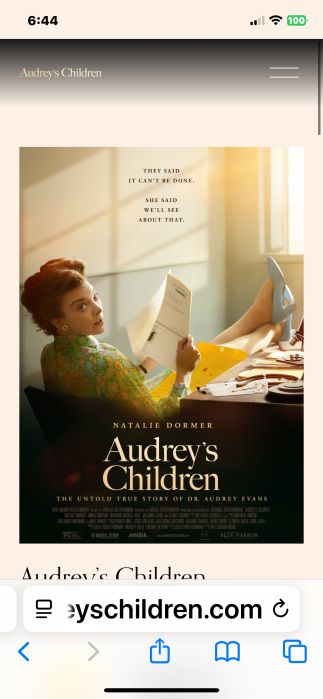Bellport resident and film actress Isabella Rossellini, who established the organic Mama Farm B & B in Brookhaven hamlet, is a busy woman. She has been touring in France with her show, “Darwin’s Smile,” and the movie “Conclave,” in which she plays Sister Agnes, was recently released and is already getting Oscar buzz.
Sister Agnes is in charge of Casa Santa Marta, adjacent to St. Peter’s Basilica, where the cardinals sleep and eat. While the nuns in her care clean the cardinals’ quarters, cook and serve daily meals, their calm presence balances the scheming and intrigue. But there is one disturbance in their midst. And they are watching. Particularly Sister Agnes, who notes the powerful cardinal that wants to tip the scales (John Lithgow as Cardinal Tremblay) so that the Black Cardinal Adeyemi from Ghana (Lucian Msamati) doesn’t get his fervent wish. She leaves clues. But also speaks out (thank God!) during a powerful altercation.
Director Edgar Berger’s film “Conclave,” based on the Robert Harris novel, is an electrifying film chronicling the process of electing a new pope by spiritual men. Some are ruthless, ambitious, or seriously flawed with others who are conscientious in liberalizing the church (Stanley Tucci as Aldo Bellini) and fostering its true nature (Carlo Diaz as the terrific Vincent Cardinal Benitez). This is what the thoughtful, highly moral, but burdened British Dean of Cardinals Thomas Lawrence (a brilliant Ralph Fiennes) is tasked with as he is sequestered in the Vatican with these men.
GSBN: You don’t want to mess with Sister Agnes. You grew up in Rome and attended Catholic school with nuns. What were they like, and what aspects did you take from them for your role? And yours?
Isabella Rossellini: Thank you for this interview. You don’t want to mess with Sister Agnes. You’re right. I went to Catholic school and was taught by nuns, and they were very, very straightforward and organized. And strangely, I would say they lived by their passion. They lived by their calling, and so did my mother. (Film actress Ingrid Bergman) I know it’s a strange parallel, but my mother, I was born in the 1950s, my mother was, if you want, a rebel. In the fifties, in Italy, not many women worked. And my mother came from Scandinavia, which is much more emancipated, having a huge career as an actress, controlling her destiny, controlling her professional life, and still having four children. The nuns seemed to me the same. And Mama, when she talked about acting, she said, “I didn’t choose acting. Acting chose me.” It was a calling. And that word, “it was a calling,” was used exactly. But one of my favorite nuns at school, when I asked her, “when you decided to become a nun, what was your family’s reaction?” And she told me they cried. Her mother wanted to be a grandmother, and of course, Catholic nuns cannot marry and have children. So she cried, and she said, “why don’t you go to church every day, but make me a grandmother? “ But she said, “I could not. I didn’t want to pain my mother, but it was a calling to be a nun.” So, there was this incredible determination and authority that nuns have and my Mom had, and that was the inspiration for me to play Sister Agnes.
GSBN: Sister Agnes does a lot of observing. Her quote: “Although we sisters are supposed to be invisible, God has nevertheless given us eyes and ears.” Please talk about that and the role of sisters in the church.
Isabella Rossellini: Sister Agnes didn’t push over and doesn’t, but does a lot of observing. The quote, to quote my character, there was the cue of how to play Sister Agnes. I say, “Although we sisters are supposed to be invisible, God has nevertheless given me eyes and ears.” In this long character that I play, I never speak because my role as a nun is to be a servant, to be subservient to men, and the Catholic church is a very strong patriarchal society. Cardinals are men. Popes are men. Cardinals vote nuns do not vote, don’t even, cannot even do mass. So, but that’s her choice. You know, she respects this tradition. And I wanted to be always incredibly alert, incredibly present, and silent. It was like a shadow that follows everything that is happening, but in silence. And it was a challenging role, because generally, you know, you notice the actors who are talking and who were yelling, those were big scenes. And my character had to be a shadow. And that was the challenge. And what I liked about playing Sister Agnes to be the shadow. And yes, when she speaks, whoa, she speaks.
GSBN: The movie is amazing in its complexity, its revelations of human nature among exalted men of spirituality, doubts that even the religious grapple with, as with Cardinal Lawrence who admits he has difficulty with prayer. Are all these aspects what drew you to making the film?
Isabella Rossellini: The movie is amazing in its complexity and revelation of human nature. What drew me to the role? Well, I think what drew me to make the film was that beautiful speech by Cardinal Lawrence, played by Ray Fiennes. He says at the beginning of the film, where he talks about, “Certainly is the great enemy of unity. Certainty is the great enemy of tolerance,” that certainty is bad and doubt is good. He said if there was no doubt, there would be no need for faith. Doubt makes you listen, opens your mind, makes you understand, and also humbles us because we are all human beings, and we can make mistakes. Although sometimes in my life, I want to be certain because I want to be strong, and I want to make a decision either that way, or that way, this or that. Actually, it is doubt that it is the most humble, the kindest, and the one aspect that opens my mind. So, I think that speech is what drew me to the film because I knew the film is an order, a glorification of doubt. And you see this man in political discussion, conservatives versus liberal, the conservative actors played by Sergio Castillito, a great Italian actor. He played it so brilliantly. I always imagined somebody conservating to be all dressed up and all tied up. And instead, he played it with smoking, sitting, and drinking wine like a man. I thought he was brilliant and funny. But the film portrays humans: The discussions we have whether to solve problems in a liberal way or conservative ways. There is also human ambition like the character of John Lithgow. And there is also spirituality and sainthood. And this, the church deals with that because the church, even the Pope, is a human being.
GSBN: How long were you on the set? I understand it was filmed in the Cinecitta Studios, (a 99-acre film studio in Rome, the largest in Europe, founded in 1937 by Benito Mussollini). The sets were amazing, including the Casa Santa Maria, where the cardinals ate and slept. Please discuss a bit about how they created some of those amazing scenes.
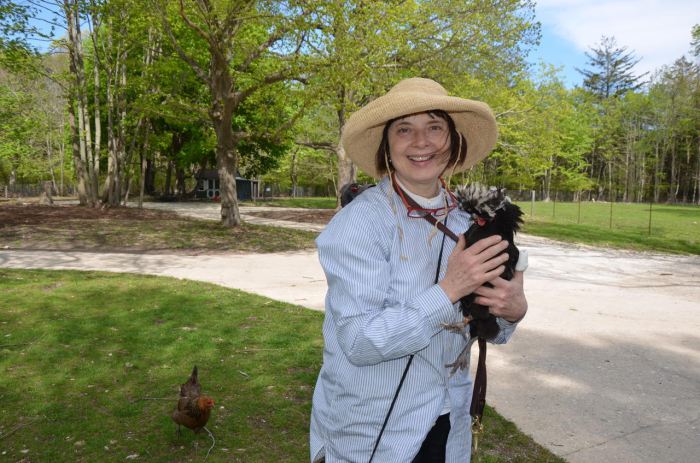
Isabella Rossellini: I was in Rome for about a month or six weeks. The film took about two months to be shot. We shot in Rome, sometimes in the Vatican, sometimes not in the Vatican. You cannot shoot in the Sistine Chapel. So, the Sistine Chapel was reconstructed in Cinecittà, which is a major studio. And I have to say that the generation of my father, Roberto Rossellini or Federico Fellini used Cinecittà and fostered a group of incredible artisans that still today are creating the most beautiful sets are really known for that. And the Sistine Chapel was completely reconstructed. I went, playing the nun. I was not allowed into the Sistine Chapel. This is where the cardinals locked themself up to discuss the new Pope. And the women are not allowed. But I went as a tourist; I went to see it, which was so magical. I went to see the actual Sistine Chapel and then went to see the Cinecittà Sistine Chapel. And it was amazing. And I felt so proud that because I’m Italian, I felt very proud of Italian artists, and they were able to reconstruct that.
GSBN: How did you prepare for the role? And what direction did you get from Edgar Berger?
Isabella Rossellini: Edward Berger is a fantastic director. He lives in Berlin. He is German, but I would say he is very international. He speaks English perfectly well. All his films are in English. I loved his film, “All Quiet on the Western Front,” that won Best International Feature Oscar (as well as three other Oscars) two years ago. Film. When he offered me the role, I didn’t have to audition for it. He flattered me by saying, “Sister Agnes is silent. But it has to be like a silent movie star. It has to have somebody with great charisma.” And I said, “Are you talking about me?” And he said, “Yes, I want somebody with charisma.” So, he flattered me. But we had no discussion. I mean, I told him I went to school with nuns. I was familiar with the nuns, and I thought their Sister Agnes had to play with great authority. She’s not in the brawl of the political or spiritual or not in the brawl of deciding who’s the Pope. So, she’s slightly detached and might have a better vision of all that is happening. And he completely agreed with it. There was absolutely never a disagreement or a discussion.
GSBN: You worked with amazing actors. Who did you meet up with after hours for dinners?
Isabella Rossellini: I did work with amazing actors. I’m good friends with Stanley Tucci and John Lithgow. They’re personal friends. And I’ve worked with John in three or four films on television, in television series, and on several films with Stanley Tucci, which he directed, including “Big Night.” It is a lovely film about food because Stanley is all about food. And Stanley knows about it. He took us to a restaurant in Rome because he knows more than I about good places. But I took him to one in Rome called L’Eau Vive, in French, “Alive Water,” which is Saint Water, the water you cross when you enter the church. L’eau Vive is a restaurant run by nuns. The Vatican is like the UN; you know, it has people from all over the world. Cardinals, bishops, nuns, and priests come from Africa, Asia, and all over the world to Rome. The Vatican is an independent city within Rome. And L’Eau Vive is a restaurant that serves them, but it’s open to the general public. My mother used to go there because she was Ingrid Bergman, and she was known. So, people came up and asked for photos, to sign books, or for her signature. Well, Mama wanted to be left in peace. So, we went off into this L’Eau Vive where people hardly knew who she was, or if they knew, they were very respectful. I brought Stanley there and was very flattered when Stanley, who just came out with a book, “What I Ate in One Year,” a diary of what he ate every day. And he wrote about the day I took him to the L’Eau Vive.
